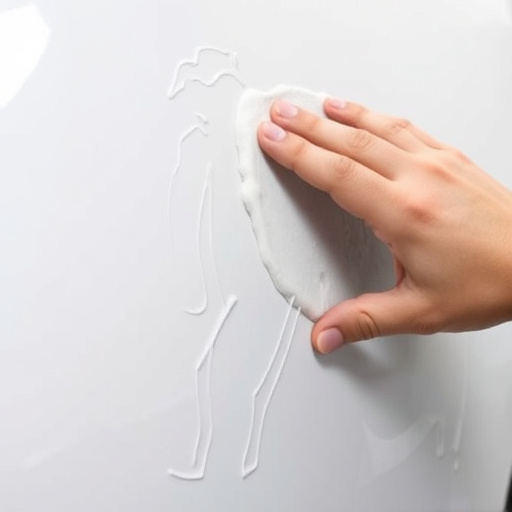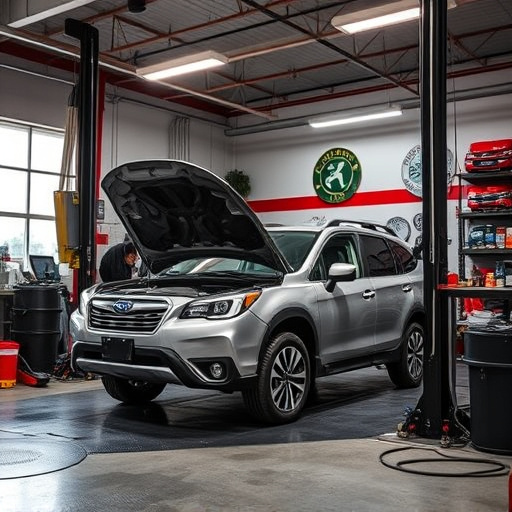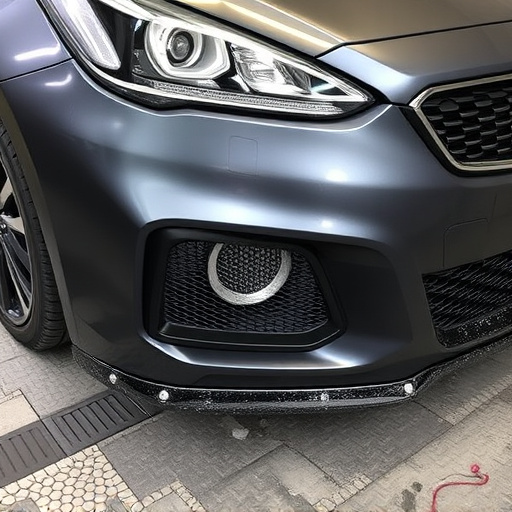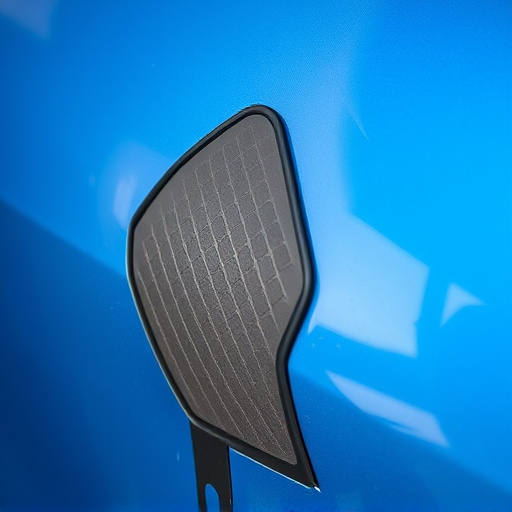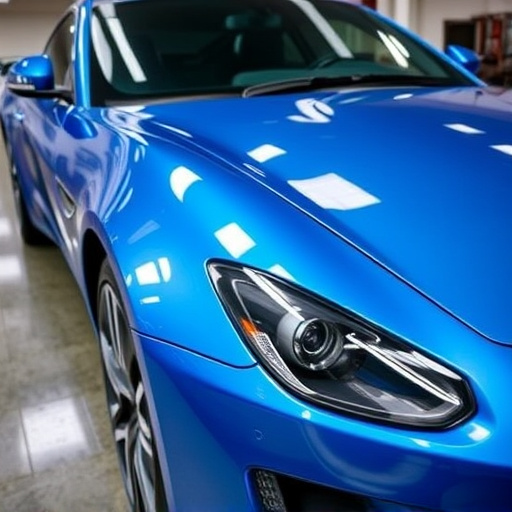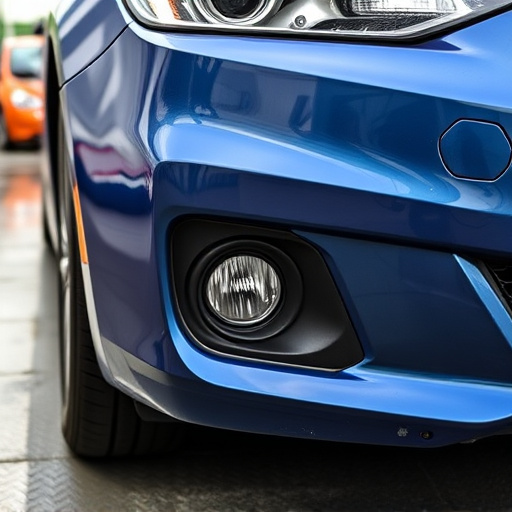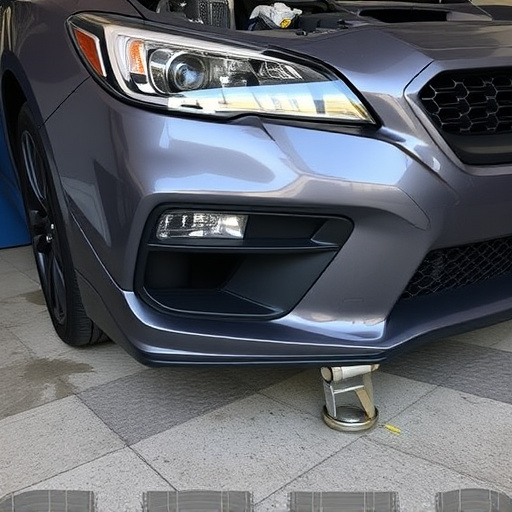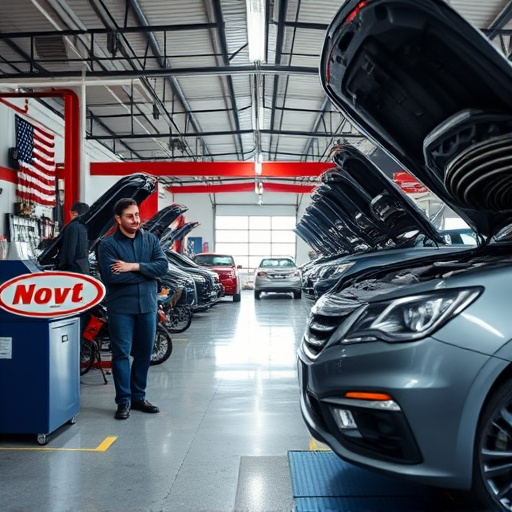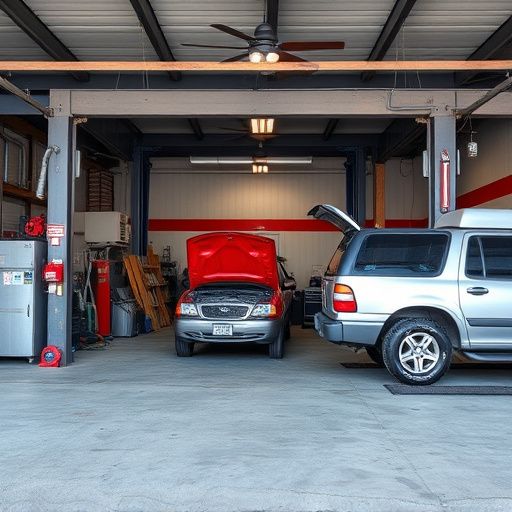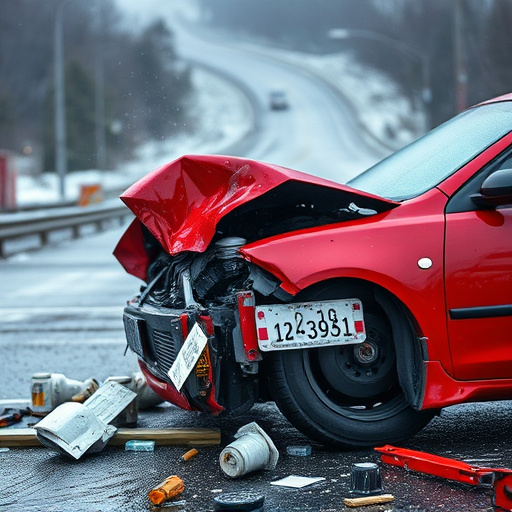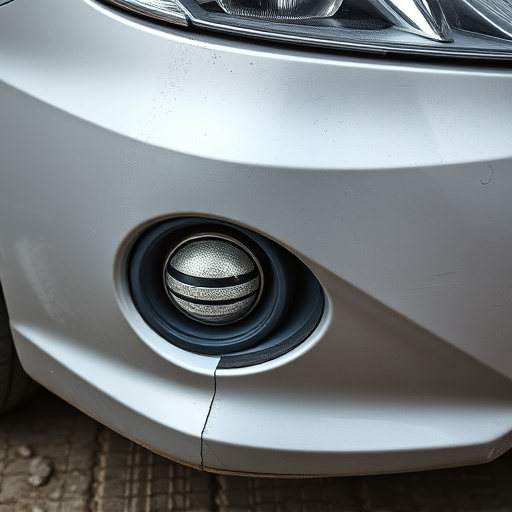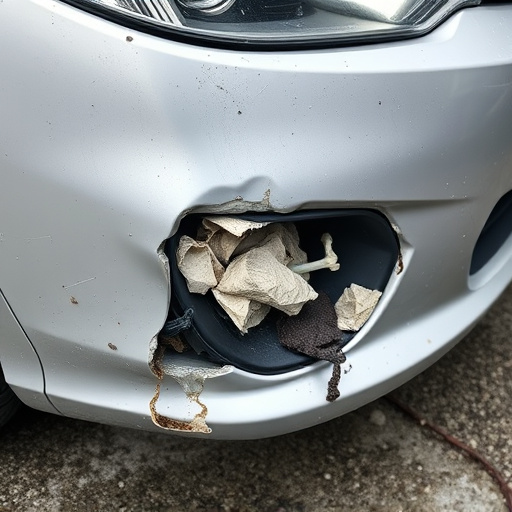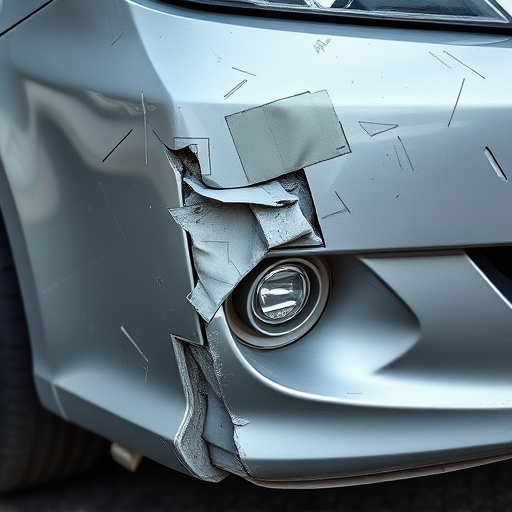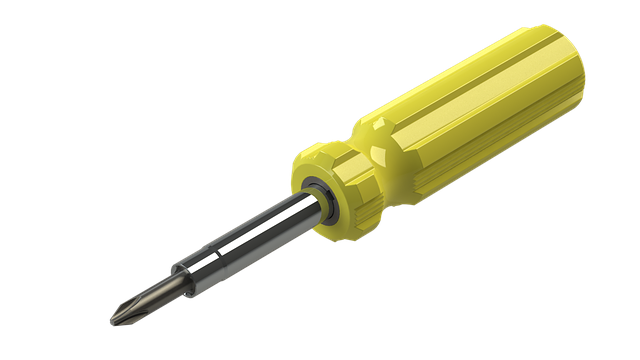Regular calibration of Mercedes impact sensors is critical for maintaining peak performance and ensuring driver and passenger safety. These sensors detect and respond to collisions within milliseconds, deploying airbags and locking brakes. Over time, environmental factors or wear can impair accuracy, requiring specialized equipment at a collision repair center for precise adjustments. Manufacturers recommend calibration every few thousand kilometers or during major services, alongside auto frame repair and body painting, to safeguard the vehicle's safety systems.
Mercedes impact sensors play a pivotal role in enhancing driver and passenger safety, detecting collisions and deploying airbags accordingly. Regular calibration is essential to ensure these sensors function optimally, providing accurate data crucial for timely and effective airbag deployment. This article delves into the significance of Mercedes impact sensor calibration, offering insights on understanding these critical safety systems and practical tips to maintain their accuracy.
- Understanding Mercedes Impact Sensors: Their Role in Safety
- The Importance of Regular Calibration for Optimal Performance
- How to Ensure Your Mercedes' Sensor Remains Accurate and Safe
Understanding Mercedes Impact Sensors: Their Role in Safety
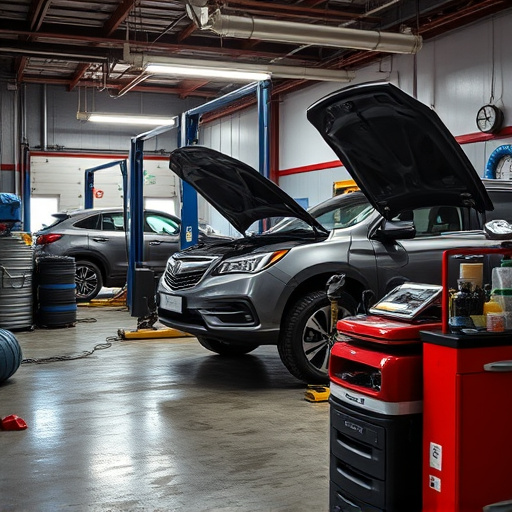
Mercedes impact sensors are crucial components designed to detect and respond to collisions, playing a pivotal role in enhancing driver and passenger safety. These sensors, integrated into Mercedes vehicles, work in tandem with advanced airbag systems and other safety features to minimize the risk of accidents and their consequences. When a collision is sensed, these sensors trigger a series of events, including deploying airbags, locking brakes, and even activating child safety locks, all within milliseconds.
Proper Mercedes impact sensor calibration is essential for ensuring these critical safety mechanisms operate effectively. Regular calibration maintains the accuracy of sensor readings, guaranteeing that the vehicle’s safety systems respond appropriately in the event of an accident. This process aligns with routine car repair services, specifically focusing on auto frame repair and auto body painting, to keep the vehicle in optimal condition. By maintaining well-calibrated impact sensors, Mercedes owners can rest assured that their vehicles are prepared to protect them and their loved ones on the road.
The Importance of Regular Calibration for Optimal Performance
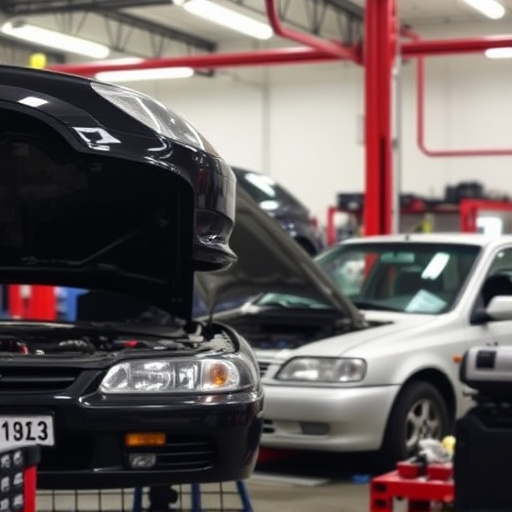
Regular calibration of Mercedes impact sensors is paramount for maintaining optimal performance and ensuring the safety of drivers and passengers. These sensors play a crucial role in modern vehicles, particularly during collisions, by quickly detecting and assessing the severity of impacts. When properly calibrated, they enable the vehicle’s advanced safety systems to react swiftly and effectively, reducing the risk of secondary injuries.
Over time, factors like environmental conditions, wear and tear, and even minor accidents can affect the accuracy of impact sensors. A vehicle body shop or collision repair center with specialized equipment can perform precise Mercedes impact sensor calibration, ensuring these critical components function at peak efficiency. This process is an essential part of any auto body painting or collision repair job, as it directly contributes to the overall safety and reliability of the vehicle.
How to Ensure Your Mercedes' Sensor Remains Accurate and Safe
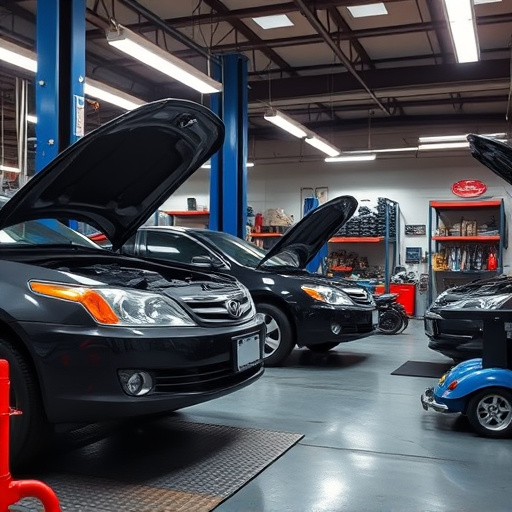
To ensure your Mercedes’ impact sensor remains accurate and safe, regular calibration is key. Just like any other critical safety feature in modern vehicles, proper maintenance is essential to prevent malfunctions that could compromise driver and passenger safety. Calibration involves adjusting the sensor’s readings to match real-world conditions, ensuring it accurately detects and responds to collisions or impacts. This process can be performed at a reputable vehicle body shop or auto body repair center with specialized tools, ensuring your Mercedes’ sensors are always on point.
Regular checks and adjustments, often recommended by manufacturers every few thousand kilometers or during major service intervals, help maintain the sensor’s reliability. Additionally, if you’ve had any recent paintless dent repair work, it’s wise to have the impact sensor calibrated afterward. This is because even minor adjustments can affect sensor accuracy, so staying proactive ensures your Mercedes’ safety systems function optimally, providing peace of mind on the road.
Mercedes impact sensor calibration is an essential aspect of maintaining optimal vehicle safety. By regularly calibrating these sensors, drivers can ensure that their Mercedes vehicles respond accurately during emergencies, safeguarding both driver and passenger. Through simple maintenance practices outlined in this article, owners can keep their impact sensors reliable, thereby enhancing overall driving experience and peace of mind on the road.
